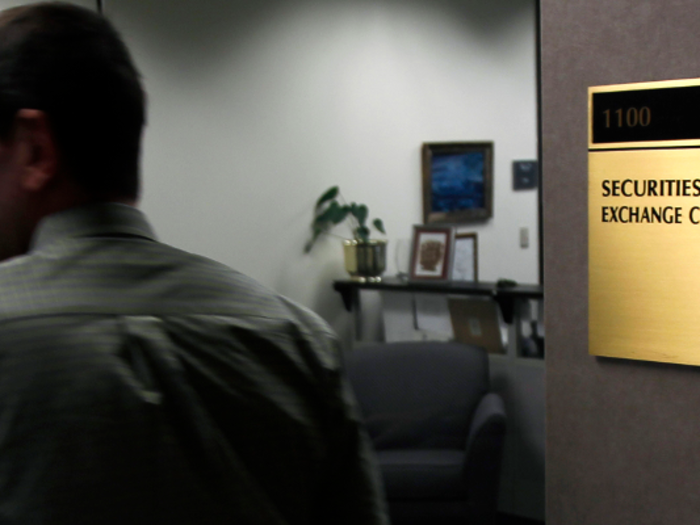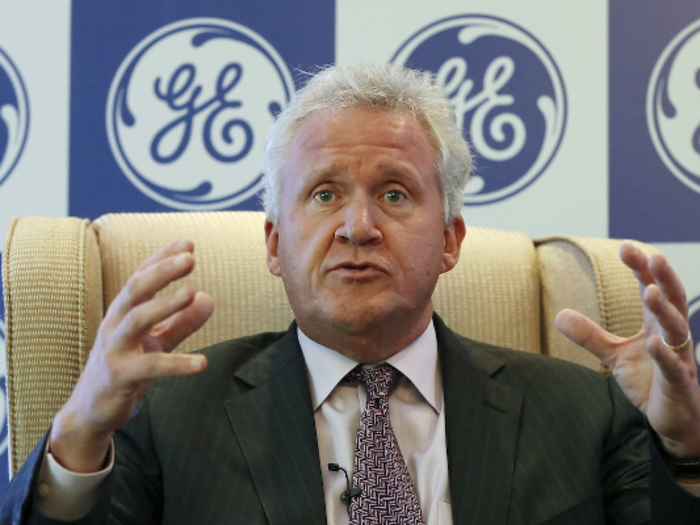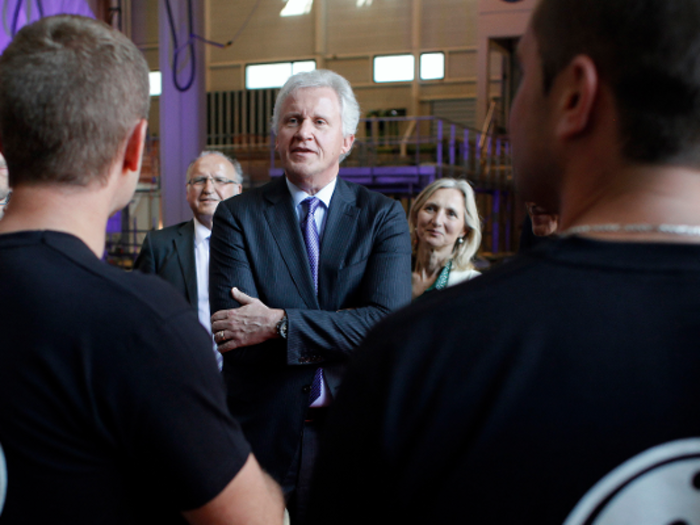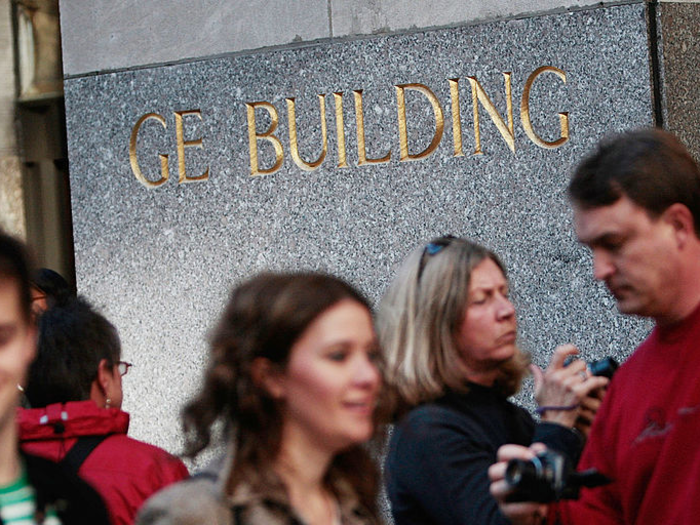- Home
- slideshows
- miscellaneous
- The bombshell report accusing GE of 'Enronesque' fraud is just the latest in the company's long history of accounting controversies
The bombshell report accusing GE of 'Enronesque' fraud is just the latest in the company's long history of accounting controversies
2019: Markopolos report alleges "Enronesque" fraud

2018: SEC opens new probe into GE's accounting

The Securities and Exchange Commission announced an investigation into GE's accounting practices January 2018, focusing on a large insurance reserve increase announced in a quarterly earnings report.
The company revealed a review of its GE Capital insurance portfolio just days earlier, taking a $6.2 billion after-tax charge in the fourth quarter of 2017 and announcing it would spend $15 billion to boost reserves over a seven year period.
The SEC's investigation prompted CFO Jamie Miller to restate GE's 2016 and 2017 financial results.
The regulatory committee expanded the investigation in October 2018 to include a $22 billion charge GE took in the third quarter related to acquisitions for its power business.
"At the end of the day GE evokes aggressive accounting. The fact that the SEC is in there, and we know that they've expanded the scope of what they're looking at, means it could lead to further expansion," Gordon Haskett analyst John Inch told CNBC at the time. "The SEC can ultimately look at anything they want."
2009: GE settles SEC lawsuit for $50 million

The SEC charged GE with accounting fraud in 2009. The company paid a $50 million settlement and neither admitted nor denied the allegations.
The lawsuit resulted from more than four years of investigation into the company's accounting methods. It alleged GE approved non-compliant financial reporting practices four times between 2002 and 2003.
"GE bent the accounting rules beyond the breaking point," SEC enforcement division director Robert Khuzami said in a statement. "Overly aggressive accounting can distort a company's true financial condition and mislead investors."
GE previously adjusted its accounting practices in early 2008, with the Wall Street Journal reporting the changes were an effort to end the SEC probe. At the time, the investigation already led the company to restate financial results twice and disclose three instances of accounting errors made since 2005.
2008: GE's pension liability begins with a $6.8 billion deficit

The start of the Great Recession also kicked off a long-term pension problem for the company. More than 600,000 current and former employees rely on pension payments for retirement, according to CNN, and the pension shortfall was driven up by years of accounting malpractice and inattention.
GE's pension fund fell from a $15.2 billion surplus to a $6.8 billion deficit from 2007 to 2008, according to FactSet. The debt grew nearly every year since then as the company prioritized share buybacks and acquisitions.
"The company was debatably mismanaged," John Inch told CNN. "It didn't fund the pension properly, and now you've got a massively unfunded pension."
GE still owes more than $27 billion in pension payments, according to its second-quarter 2019 report. Though the company has started to pay down its once $31 billion pension debt, the charge serves as a lasting reminder of the company's previous accounting errors.
1994: GE sells off Kidder Peabody investment bank after $350 million accounting scandal

As part of its effort to boost GE Capital, the conglomerate acquired Boston-based investment bank Kidder, Peabody & Co. in 1986. The firm was quickly implicated in a widespread insider trading scandal, with then-mayor of New York City Rudy Giuliani threatening to indict the bank.
GE eventually fired a number of Kidder executives and paid a $25.3 million settlement with the SEC. Yet the conglomerate's Kidder-sourced woes were far from over.
One trader at the bank's government bond division exploited a computer flaw in 1994, making false profits to boost his bottom line. Discovery of his actions led to the trader's banishment from the industry and a $350 million pre-tax charge in GE's following earnings report from the phantom profits.
A New York Times report of the investigation revealed that — though the single trader's illegal methods accounted for more than 25% of the fixed income division's income — higher-ups at the GE-owned bank "never bothered to really understand where the profits were coming from."
Then-CEO of GE John Welch called the series of events "a headache and an embarrassment from the start" for the company.
Years after the 1994 scandal, Welch revealed GE's leaders were so stunned by the hit to the company's earnings they considered taking from other divisions' profits to offset the loss. The dubious strategy never came to fruition.
Popular Right Now
Popular Keywords
Advertisement